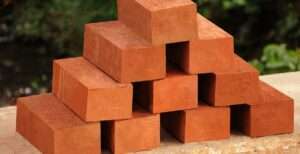
Fired Clay Bricks in Bangladesh
Fired clay bricks remain a crucial construction material in Bangladesh. In fact, the country ranks as the fourth-largest brick producer in the world. Over 7,000 brick kilns manufacture around 23 billion bricks annually. As a result, the industry contributes about 1% to Bangladesh’s GDP and provides employment to over a million people. With the population reaching 159.9 million, the country must construct roughly four million new homes each year. Consequently, this growing demand further fuels the brick industry.
Although brickmaking is an ancient craft, modern bricks differ from traditional versions. Specifically, they vary in materials, production methods, and firing technology.
Auto Bricks and Modern Kilns
Auto Bricks use modern kilns for firing. Molded bricks undergo high-temperature firing in kilns or ovens. Moreover, advanced machines allow mass production of high-quality bricks in less time. Today, Auto Bricks leads in producing engineered structural clay products. It also has expertise in modern structural clay technology.
Key players of Auto Bricks in Bangladesh include:
-
AM Auto Bricks Limited
-
Richmond Auto Bricks Ltd.
-
Runner Bricks Ltd (RBL)
-
Metrocem Auto Bricks Limited
-
Rex Auto Bricks Ltd.
Market Viability of Concrete Blocks
The concrete block industry is growing rapidly in Bangladesh. This growth is driven by eco-friendly and cost-effective building materials. In addition, the government plans to phase out traditional bricks over the next three years due to environmental hazards. As a result, demand for concrete blocks is increasing steadily.
Many brickfield owners are switching to hollow concrete blocks. Currently, the brick market exceeds Tk 90 billion, while concrete block producers have captured almost Tk 2 billion. Furthermore, Concord, Mir Group, BTI, and Meghna lead the market, each holding 20% of the share. Large companies have invested Tk 300–500 million to establish automated concrete block production facilities.
Industry Analysis
The brick industry in Bangladesh still relies on inefficient and polluting technologies. Moreover, it depends heavily on manual labor and has low mechanization. Small-scale kilns dominate the sector, and owners have limited financial, technical, and managerial capacity. Workers are employed informally and seasonally. In addition, manufacturers primarily use clay to produce solid bricks.
The government has implemented multiple rules, acts, and executive orders since 1989 to address environmental issues. Initially, it increased BTK chimney heights to reduce flue gas emissions. However, this measure proved insufficient. In 2013, legislation required modernization of kilns and their removal from urban areas by June 2016. Nevertheless, achieving this goal faced challenges. Rapidly eliminating traditional kilns would incur significant social costs. Furthermore, brick kiln owners lacked sufficient investment to replace thousands of kilns with modern Tunnel Kilns quickly.
For more details, please Contact Us.



